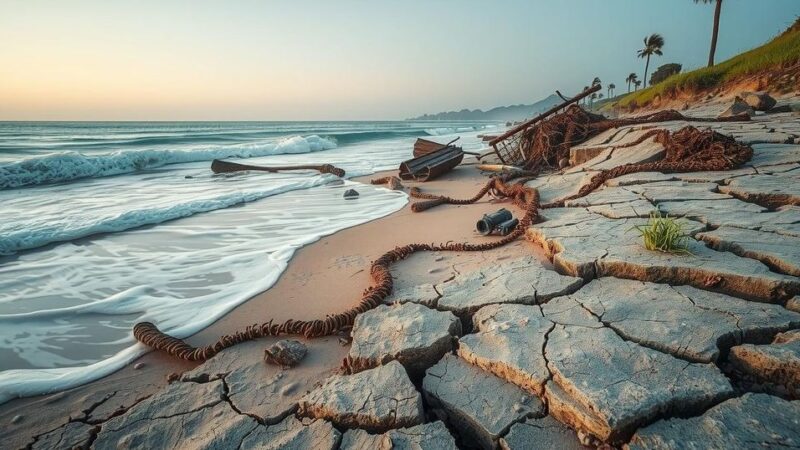In Zambia, the Catholic Bishops emphasize the immediate effects of climate change, urging for responsible environmental stewardship. Fr. Arthur Ntembula highlights the challenges of poor rainfall on agriculture and energy sectors. He insists on the pivotal role of radio in climate education and accountability, further calling for collaborative efforts to mitigate climate impacts while reinforcing moral responsibility toward creation.
In Zambia, the reality of climate change is increasingly evident, as highlighted by Fr. Arthur Ntembula, Communications Director of the Zambia Conference of Catholic Bishops (ZCCB). On February 13, he issued a statement coinciding with World Radio Day, urging for greater environmental stewardship. He noted that poor rainfall patterns are significantly impacting agriculture, water resources, and energy production, resulting in substantial economic strain on households and businesses.
Fr. Ntembula emphasized the need for behavioral changes to address these challenges, underscoring the importance of responsible environmental practices. He stated, “These challenges remind us of the urgent need to promote responsible environmental stewardship and sustainable practices.” This call for action aligns with the global observance of World Radio Day, themed “Radio and Climate Change.”
He also acknowledged the critical role of radio in elevating awareness about pressing environmental issues. “This year’s theme highlights the critical role of radio in raising awareness, educating communities, and mobilizing action to address the pressing environmental challenges affecting our nation and the world,” he asserted. Fr. Ntembula referred to Pope Francis’ encyclical, “Laudato Si’”, describing climate change as a moral issue requiring prompt action from all sectors of society.
In his message, Fr. Ntembula encouraged bold actions in Zambia to protect the environment, promote reforestation, and transition to renewable energy. He advised radio professionals to harness the medium’s wide reach and accessibility to educate communities on climate challenges. Furthermore, he stressed that radio should hold policymakers accountable for climate strategies and amplify the voices of those most affected, particularly farmers and rural populations.
Fr. Ntembula urged media outlets in Zambia, particularly Catholic stations, to prioritize climate coverage and integrate the messages of “Laudato Si’” into their programs. He stated, “Let us use radio as a platform to inspire action, build resilience, and call for policies that protect the environment for future generations.” He further called for cooperative efforts among government, civil society, and faith-based organizations to counteract the effects of climate change.
The Zambian Catholic Priest emphasized that caring for creation is not merely an option for believers but a divine expectation. This perspective aligns with UNESCO’s goals, which established World Radio Day on February 13, 2012, to recognize the significance of radio in aiding communities during climate disasters.
In summary, Zambia is facing immediate challenges due to climate change, prompting the Catholic Bishops’ Conference to advocate for enhanced environmental stewardship. As articulated by Fr. Ntembula, there is an urgent need for collective action, primarily through education and awareness via radio and community engagement. The message intertwines religious responsibility with urgent climate action, calling for commitment from all stakeholders to protect creation effectively.
Original Source: www.aciafrica.org






